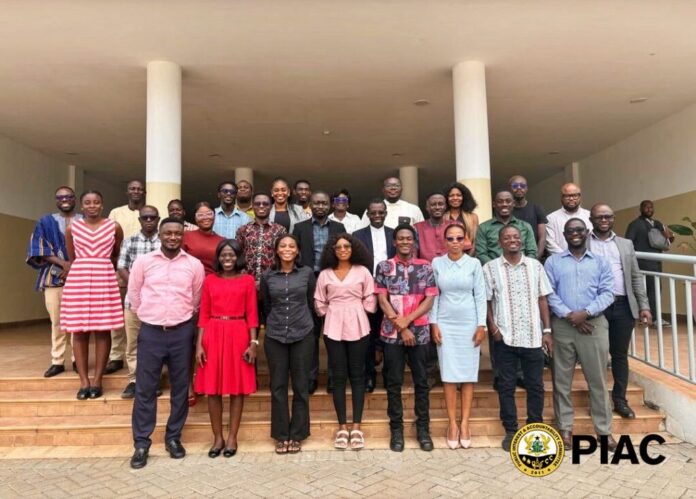The Public Interest and Accountability Committee (PIAC) has expressed deep concern over the absence of a long-term national development plan to guide the use of Ghana’s petroleum revenues, warning that the situation undermines the country’s ability to derive maximum benefit from its oil resources.
According to PIAC, the lack of a long-term framework for spending the Annual Budget Funding Amount (ABFA) as required under the Petroleum Revenue Management Act (Act 815) as variously amended has led to the thin distribution of oil funds across multiple projects, resulting in poor implementation, delayed completion, and cost overruns.
“Unlike other countries that have used petroleum revenues to build enduring growth pillars for their economies, Ghana risks missing out on the transformative impact of its oil wealth without a coherent, long-term plan approved by Parliament,” the Committee cautioned.
PIAC underscored the urgent need for a paradigm shift in the management of extractive revenues, one that is guided by a well-defined national plan, sustained political will, and a strong monitoring and evaluation mechanism to ensure accountability and measurable results.
Speaking during a presentation on petroleum revenue to fellows of the Africa Extractives Media Fellowship (AEMF) in Accra, the Coordinator of the PIAC Secretariat, Isaac Dwamena, Esq., said that media engagement and empowerment are critical to promoting transparency and responsible governance in Ghana’s extractive sector.
He noted that an informed and independent media can play a vital watchdog role by ensuring that petroleum resources are managed efficiently and in the best interest of all Ghanaians.
“Building the media’s capacity is a key part of ensuring that petroleum resources are managed in a way that benefits all Ghanaians,” PIAC emphasised.
The Head of PIAC’s Technical Department, Mark O.A.A. Agyeman, also took participants through the fundamentals of the upstream petroleum industry, emphasizing Ghana’s trajectory since the discovery of oil in commercial quantities in 2007.
The training formed part of the opening session of the six-month AEMF fellowship, which has brought together 30 Ghanaian journalists for an intensive learning experience. Organised in collaboration with the Australian High Commission and Newswire Africa, the fellowship aims to equip journalists with the skills and knowledge to report accurately and effectively on extractive sector issues across the continent.
PIAC reaffirmed its commitment to strengthening media capacity and fostering collaboration to ensure that petroleum revenue management in Ghana contributes meaningfully to national development and shared prosperity.



